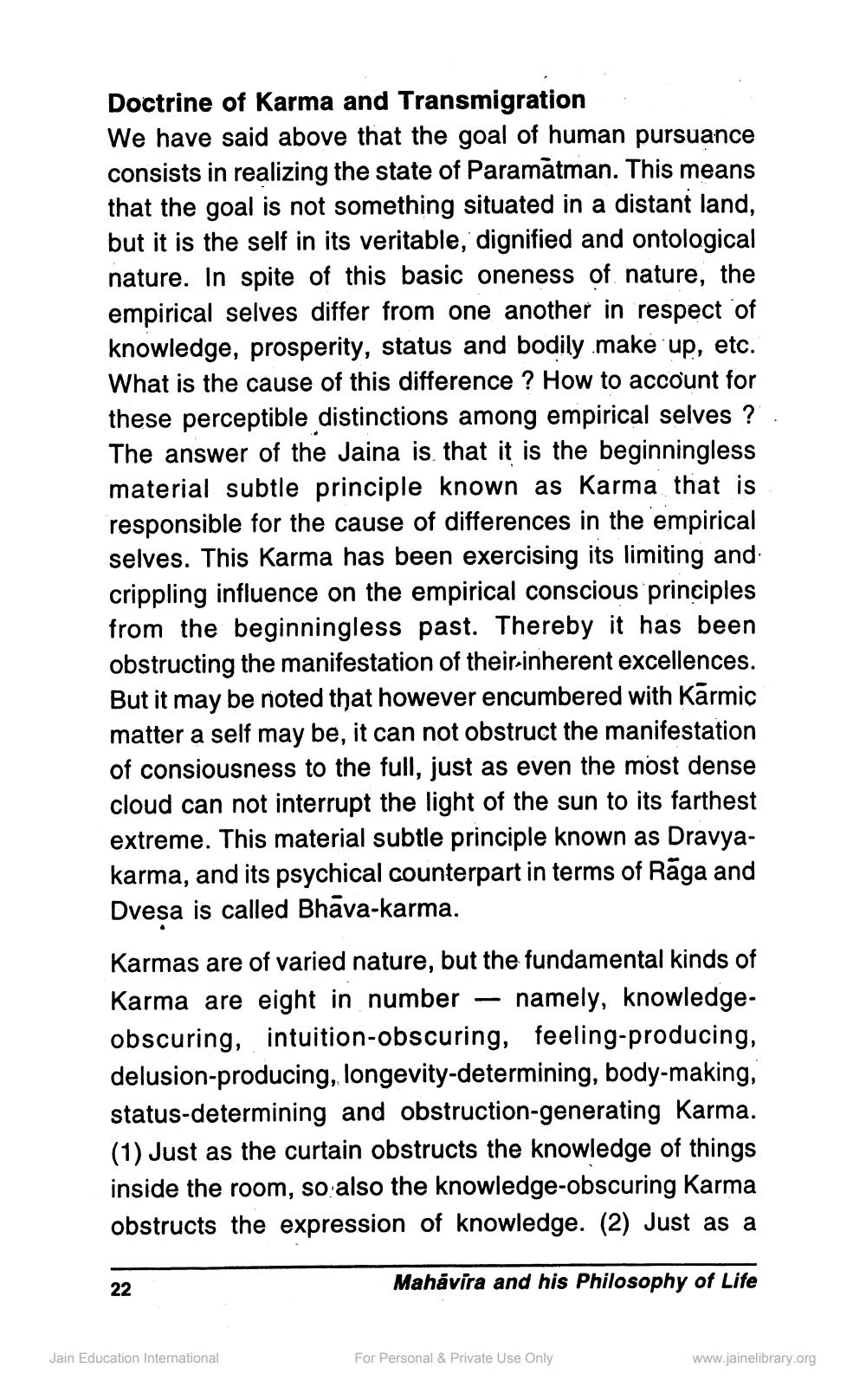________________
Doctrine of Karma and Transmigration We have said above that the goal of human pursuance consists in realizing the state of Paramātman. This means that the goal is not something situated in a distant land, but it is the self in its veritable, dignified and ontological nature. In spite of this basic oneness of nature, the empirical selves differ from one another in respect of knowledge, prosperity, status and bodily make up, etc. What is the cause of this difference ? How to account for these perceptible distinctions among empirical selves ? The answer of the Jaina is that it is the beginningless material subtle principle known as Karma that is responsible for the cause of differences in the empirical selves. This Karma has been exercising its limiting and crippling influence on the empirical conscious principles from the beginningless past. Thereby it has been obstructing the manifestation of their-inherent excellences. But it may be noted that however encumbered with Kārmic matter a self may be, it can not obstruct the manifestation of consiousness to the full, just as even the most dense cloud can not interrupt the light of the sun to its farthest extreme. This material subtle principle known as Dravyakarma, and its psychical counterpart in terms of Rāga and Dvesa is called Bhāva-karma.
Karmas are of varied nature, but the fundamental kinds of Karma are eight in number – namely, knowledgeobscuring, intuition-obscuring, feeling-producing, delusion-producing, longevity-determining, body-making, status-determining and obstruction-generating Karma. (1) Just as the curtain obstructs the knowledge of things inside the room, so also the knowledge-obscuring Karma obstructs the expression of knowledge. (2) Just as a
22
Mahavira and his Philosophy of Life
Jain Education International
For Personal & Private Use Only
www.jainelibrary.org




